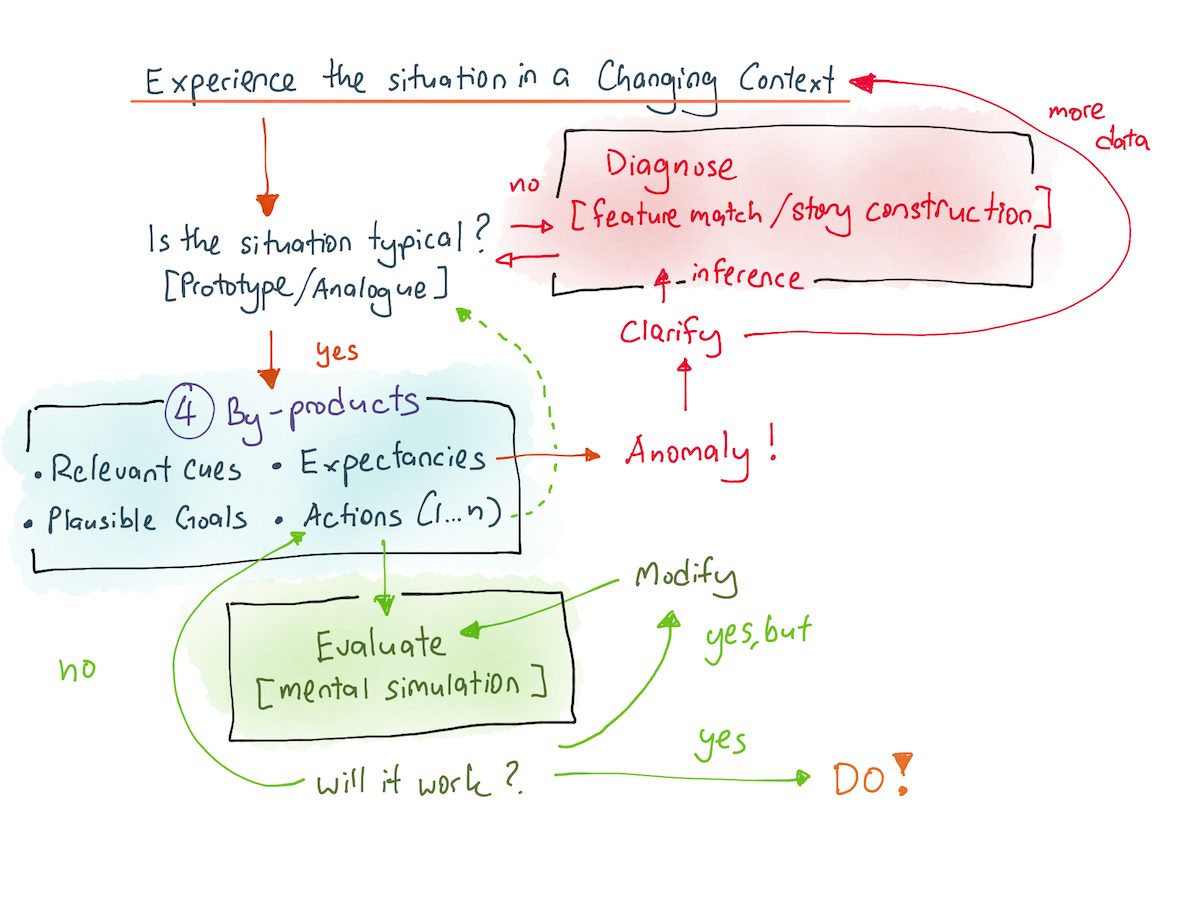Expertise is pattern matching
Navigation
- Summary
1.1 Meta-Summary - Expertise is Pattern Matching
- Mental Representations
- Types of Practice
4.1 Naive Practice
4.2 Purposeful Practice
4.2 Deliberate Practice - References
Summary
- Expertise is better explained as essentially pattern matching rather than deliberate practice
- The art of practice is about finding the most effective way to expand your collection of patterns/prototypes
- Decrease the length of feedback loops
- Focus on specific subskills before moving to more complicated ones
- Preferably with someone slightly more skilled than you
- Copy the best practitioners, instead of asking how—not all experts are good teachers
- Learn to mime their movements in order to help your brain as it constructs the necessary tacit models
- Look for leverage points in your fields to come up with creative solutions to constraints
Meta-Summary
Completion means nothing, acquiring new patterns means everything. Coding a small idea yields more efficient pattern-gathering than a large side-project. Analysing and remixing other’ ideas is faster writing practice than sitting around trying to develop your own ideas. Skim books, optimise for tight feedback loops and don’t look for perfection.
Expertise is Pattern Matching
“Expertise is an implicit memory operation: you recognise a situation in a developing environment and then unspool that recognition into a set of cues, a list of plausible goals, and handful of expectancies, and a series of trained actions. If the situation is novel, you construct variants of intended actions on the fly and simulate these scenarios in a loop, picking the first workable solution in your mind.”

Fig 1: The Decision-Making Process
- The basis of human expertise rests on building effective mental representations of whatever field it is that you want to be an expert in.
Mental representations
Expert performance is determined by mental representations. It doesn’t matter if we’re talking about piano or Judo, tennis or chess, ballet or violin. An expert’s ability to perform well depends on the effectiveness of the representations she holds in her head (coupled with physical training in the case of sports, of course).
“Because the details of mental representations can differ dramatically from field to field, it’s hard to offer an overarching definition that is not too vague, but in essence these representations are preexisting patterns of information—facts, images, rules, relationships, and so on—that are held in long-term memory and that can be used to respond quickly and effectively in certain types of situations. The thing all mental representations have in common is that they make it possible to process large amounts of information quickly, despite the limitations of short-term memory. Indeed, one could define a mental representation as a conceptual structure designed to sidestep the usual restrictions that short-term memory places on mental processing.”
Types of Practice
Naive Practice
Naive practice is the act of doing something repeatedly, with the belief that mere repetition would improve one’s performance.
“Practice doesn’t make perfect. Practice makes permanent.”
Repeatedly practicing subpar technique results in that technique becoming instinctive and habitual. The worst thing you can do for your progression is to keep doing subpar things the same way again and again — it signals to your brain “Remember what you’re doing now! Do this forever!” and dooms you to mediocrity.
Purposeful Practice
- Purposeful practice has to be focused. You should not be able to think of anything else while undertaking it.
- Purposeful practice should take you out of your comfort zone. It should feel painful to do. So: putting on a musical performance of pieces you’re already good at does not count, and writing a program that utilises techniques you already know isn’t useful. Practice that makes you better should take maximal effort, and should therefore feel terribly unpleasant to do.
- Purposeful practice requires feedback, and adjustments to technique after getting the feedback. In its most general form, Ericsson notes that feedback need not be immediate — but it is most effective if the feedback loop is short.
- Purposeful practice has well-defined, specific goals. You don't want to "play this musical piece", you want to "play the complicated second section that requires unorthodox finger placement". You don't want to "code iPhone apps" you want to "implement the nested MVC model from scratch".
Deliberate Practice
Deliberate practice picks up where purposeful practice left off, but adds a small number of additional properties:
- It demands that the practice be conducted in a field with well-established training techniques. Fields like music, math and chess have rigorous training methods that have been developed over the course of decades. This makes such fields ideal candidates.
- It demands that practice be guided in the initial stages by a teacher or coach. Good mental representations are needed for effective self practice. A student may eventually develop the necessary mental representations to practice on her own … but a coach is necessary for development of proper mental representations in the beginning.
- Deliberate practice produces and depends on effective mental representations ... basically, a virtuous cycle. As hinted at by the second property — improving performance means improving mental representations; as one’s performance improves, the representations become more nuanced and effective, thus making it possible to improve further.
- Deliberate practice nearly always involves building or modifying previously acquired skills — by focusing on particular aspects of those skills and working to improve them individually. This means finding teachers or coaches with ever higher levels of expertise, dropping ones that are lousier as you move up the ladder to mastery.